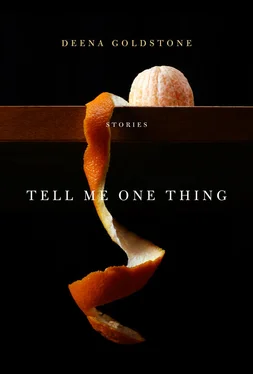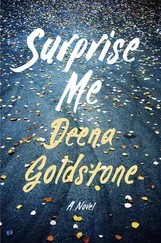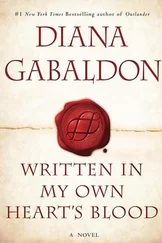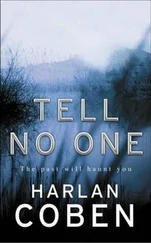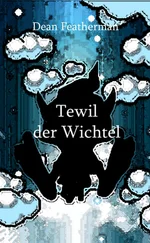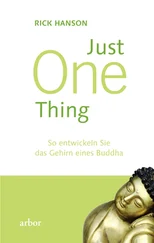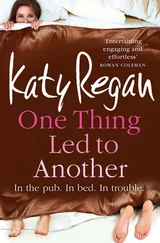Carrie thought it was a kindness that Hugh performed each night — to wash away the day’s filth. Jamie always saw it as one more aspect of his father’s narcissism, a sort of preening. And to Jamie, the clothes say that, too. Silk shirts in soft colors — ocher, beige, dove gray — and cashmere sweaters in rich, dark tones. Hand-tailored shoes of supple Italian leather. Each item carefully bought and meant to last forever. That way, slowly, Hugh had accumulated a wardrobe of beautiful things. No one would know that he spent his days mucking out blocked toilets or flat on his back in the crawl space of a house wrestling with corroded pipes. No one would know that he screamed at his wife or beat his kids. No, here was a man who bought only the finest, who deserved only the best.
Jamie grabs an armful of the shirts and makes his way out of the bedroom. His brothers and sisters are too busy arguing in the kitchen to pay him much mind. He knows if he asked for help the job would go more quickly, but he doesn’t. He just makes the many trips he has to make from the bedroom to the open trunk of his car quietly, wanting the singular satisfaction of taking out of the house all this personal evidence of his father’s life.
Back in the bedroom, the closet now empty, he opens the top drawer of his father’s bureau and contemplates the neatly folded pajama sets. Hugh made Carrie iron his pajamas, and each set is pristine and wrinkle free. As Jamie reaches into the drawer, he uncovers a very old pair, washed and ironed so many times that the images of horses on them have faded to shadows of their former selves. The reds have become faded browns and the blues are all but violet, and yet, immediately, the sight of the pajamas floods him with a moment in his childhood long forgotten.
There is his father, in those very pajamas, brightly colored then, sprawled in front of the television, in the middle of the night, his legs straight in front of him, his bony feet bare and splayed, his arms hanging off the side of the easy chair he had always claimed as his own. Of course, there’s a bottle of beer in his right hand, the empties scattered on the rug — Jamie can see the image as if it’s a movie scene playing in his head. The television is flickering with some middle-of-the-night black-and-white movie, and there he is, maybe three years old, running into the room, terrified, he remembers now. He even remembers the nightmare that propelled him out of bed and down the two flights of stairs, something big and clawlike coming through the bedroom window. And in his memory he watches his three-year-old self crying, hiccuping really, his heart beating far too fast as he scrambles into his father’s lap, whimpering, “Daddy, Daddy!” Don’t do it , he wants to say, in a vain attempt to stave off what he knows is coming. He understands now, of course, that asking for comfort from his father was the wrong thing to do.
Hugh Sr. sputters awake, still drunk, and pushes his son’s small body off of him before he even knows what he’s doing. But it’s the words Jamie remembers now, so many years later, words he would hear again and again—“You little shit, get out of my sight!”
Such a small moment, but it has Jamie bent over the dresser, forehead resting on the top, grieving for that small, frightened boy. This is why I don’t come home , he tells himself, the past is too present here .
As if his mother is reading his thoughts, she says to him now, without turning over, her face to the wall, “He loved you children, Jamie, you know that.”
And he feels it — a surge of anger, like a lit match, roaring through him. It snaps his body straight. Love?! What is she talking about?! What grotesque universe does she live in that she can call what his father gave him, love? Dead and buried and she’s still defending him. At the expense of the truth … at the expense of her children .
Jamie scoops up the contents of the drawer and leaves the room; his mother’s body stretched out on the bed, doesn’t move.
Outside, he flings the pajamas on top of all the other clothes in his car trunk, starts to slam the lid closed, and then — an inspiration. He stops. Slowly now, with the calm that deeply embedded anger can bring, Jamie grabs one of his father’s very expensive suit jackets and holds it up.
“Dead man’s clothes!” he yells. “Get your dead man’s clothes!”
One of the nephews, kicking a soccer ball back and forth on the front lawn, hears him and comes up the driveway.
“Hey, what’s going on, Uncle Jamie?”
Jamie throws the jacket at him. “Take it,” Jamie says, “and a shirt to go with it.” He grabs one at random and tosses it also. “How ’bout a tie, or two — all silk, looks good with the shirt.”
He shoves the ties into his nephew’s arms. “Cool” is all the teenager says, but then there are more nephews there, grabbing clothes from the open trunk. Sweaters are pulled over heads, a silk dressing gown is grabbed by one of his nieces, shoes are slipped onto feet. And through it all, Jamie is shouting, “Dead man’s clothes, come and get ’em!”
The back door opens and some of his brothers and sisters are there. Drew is outraged but Moira is laughing and grabs something, anything now, it doesn’t matter, putting it on, parading down the driveway. Bits and pieces of Hugh Sr. thrown around from child to child, cousin to cousin, put on, exchanged, traded with another cousin, scraps of Hugh’s dignity walking across the front lawn. Hugh Jr. wants the hats — fine, gray fedoras that he claims for his own. The pajamas go, armfuls of them, and even his father’s underwear is grabbed by someone.
“Put ’em on, take ’em off. Trade ’em. Sell ’em. Whatever you want, but get ’em now — your dead man’s clothes!” Jamie yells.
And it’s then that he looks up and sees his mother standing in the open kitchen doorway, ashen, horrified at the blasphemy of what he’s doing. Her eyes hold his and Jamie doesn’t flinch, doesn’t look away. There is no guilt in him. He wants her to know that he’s doing this with pleasure, with gusto, with revenge. “Get your dead man’s clothes!”
VERY EARLY ON A SUNDAY MORNING, BEFORE the sun is even up, on the one-year anniversary of their father’s death, Ellen O’Connor arrives on her brother’s doorstep and rings the bell. Despite having lived in San Diego for the past thirteen years, Jamie O’Connor can think of no one he would be glad to see at 5:17 a.m. He assumes someone’s made a mistake, turns over, and goes back to sleep.
Standing in front of the third door in an identical line of weathered gray doors of the Casa Nuevo Villa, condo units that didn’t even look “nuevo” when they were built in the eighties, Ellen checks her cell phone for Jamie’s address. She’s exhausted; maybe she’s made a mistake. Having flown all night from Spain, where she has exiled herself for the past seven years, Ellen’s not sure she’s at the right unit. She is. She rings the bell again.
Jaime groans in his bed. It’s Sunday , he wants to shout. Can’t they —an undefined, amorphous “they” that encompasses almost the whole world —leave me alone?! Then he hears “Jamie?” and the familiarity of the voice pulls him out of bed.
From his second-floor bedroom window he can look down on his front doorstep, and there she is, his sister Ellen, standing at the door, one small duffel bag in hand. Well, at least she’s alive is his first thought. The last time he saw her he wouldn’t have made a bet on that possibility.
He opens the window, sticks his head out, “Ellen,” and she steps back so she can see him and then gives him that smile he remembers so well from their childhood, the one that promised something slightly naughty.
Читать дальше
